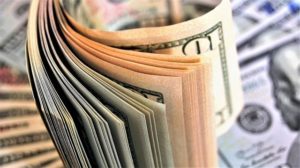 Recently, I was representing a dentist in the purchase of a practice and a unique issue came up about the occasional sale tax exemption. My client wanted to know if there were any unforeseen actions he could take after buying the seller’s lone practice which would prevent the seller from utilizing the occasional sale exemption and thereby expose my client to liability in the future. The short answer in that transaction was no.
Recently, I was representing a dentist in the purchase of a practice and a unique issue came up about the occasional sale tax exemption. My client wanted to know if there were any unforeseen actions he could take after buying the seller’s lone practice which would prevent the seller from utilizing the occasional sale exemption and thereby expose my client to liability in the future. The short answer in that transaction was no.
Generally, when a dentist or physician sells her lone practice, she will not have to pay any California sales tax on the purchase price of her practice. This is because the transaction will usually qualify as an “occasional sale” under California law. Pursuant to California’s Revenue and Taxation Code, Section 6006.5, an “occasional sale” is defined as:
- A sale of property not held or used by a seller in the course of activities for which he or she is required to hold a sellers permit or permits if the activities were conducted in this state, provided the sale is not one of a series of sales sufficient in number, scope, and character to constitute an activity for which he or she is required to hold a sellers permit or would be required to hold a sellers permit if the activity were conducted in this state.
- Any transfer of all or substantially all the property held or used by a person in the course of those activities when after the transfer the real or ultimate ownership of the property is substantially similar to that which existed before the transfer. For the purposes of this section, stockholders, bondholders, partners, or other persons holding an ownership interest in a corporation or other entity are regarded as having the “real or ultimate ownership” of the property of the corporation or other entity.
- A sale of a property, other than hay, by a producer of hay, provided that the sale is not one of a series of sales sufficient in number, scope, or character to constitute an activity for which the producer would be required to hold a sellers permit if the producer were not also selling hay.
 If the dentist in our scenario owned multiple practices, then she could possibly eliminate the occasional sale exemption by selling a second or third practice within the same tax year that she sold her first practice to my client. Regardless, because only the seller can make these “series of sales,” there was no future exposure to my client. This was welcomed news to my client and it allowed him to focus on running his new practice without worrying about any future liability to the seller or her sale’s tax. Talk to your Los Angeles healthcare attorney today to discuss your options. Contact Pacific Health Law Group today!
If the dentist in our scenario owned multiple practices, then she could possibly eliminate the occasional sale exemption by selling a second or third practice within the same tax year that she sold her first practice to my client. Regardless, because only the seller can make these “series of sales,” there was no future exposure to my client. This was welcomed news to my client and it allowed him to focus on running his new practice without worrying about any future liability to the seller or her sale’s tax. Talk to your Los Angeles healthcare attorney today to discuss your options. Contact Pacific Health Law Group today!